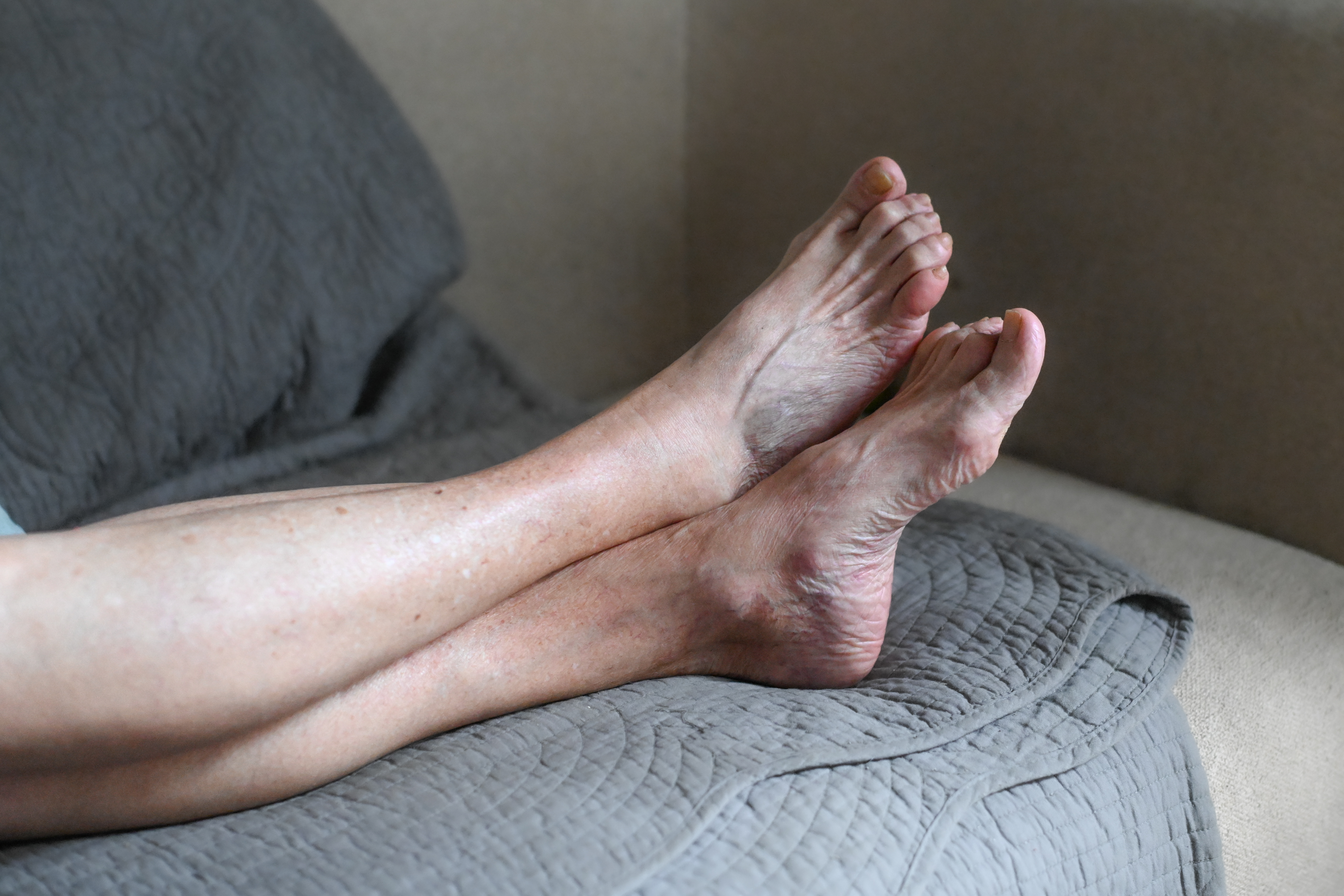13 Silent Signs Your Kidneys Are Crying for Help
The kidneys, often overshadowed by more prominent organs like the heart or brain, play a crucial role in maintaining our body’s equilibrium. These small, bean-shaped organs are responsible for filtering waste, balancing fluids, and regulating electrolytes, among other vital functions. Despite their importance, the kidneys are often neglected until they start to fail. Unfortunately, kidney damage can progress silently, with symptoms that are easily overlooked. This article delves into 13 subtle signs that your kidneys may be in distress, highlighting the importance of recognizing these early whispers for timely intervention. By understanding these signals, you can take proactive steps to protect your renal health and prevent serious complications.
1. Persistent Fatigue and Energy Loss

One of the earliest signs of kidney trouble is persistent fatigue. The kidneys produce a hormone called erythropoietin, which prompts the bone marrow to make red blood cells. When kidney function declines, erythropoietin production decreases, leading to anemia. This condition results in reduced oxygen delivery to the body’s tissues, causing fatigue and a general sense of lethargy. Unlike ordinary tiredness, this fatigue doesn’t improve with rest and can significantly impact daily activities. If you find yourself unusually exhausted despite adequate sleep, it may be time to consider the health of your kidneys.
2. Changes in Urination Patterns

Alterations in urination patterns are often among the first noticeable signs of kidney distress. This could manifest as increased frequency, especially at night, or a noticeable decrease in urine output. The presence of foamy urine can indicate protein leakage, a common sign of kidney damage. Additionally, urine that is unusually dark, pale, or tinged with blood should not be ignored. These changes can signal that the kidneys are struggling to filter waste effectively. Monitoring these patterns and seeking medical advice can lead to early detection and treatment of potential kidney issues.
3. Swelling and Fluid Retention

Swelling in the legs, ankles, feet, and even the face can be a subtle indication that the kidneys are not functioning properly. When kidneys fail to remove excess fluid from the body, it accumulates in tissues, leading to edema. This swelling is often more pronounced at the end of the day and can be accompanied by a feeling of heaviness or discomfort. Persistent or unexplained swelling should be evaluated by a healthcare professional to rule out kidney problems. Early intervention can prevent further complications and improve quality of life.
4. Unexplained Itching and Skin Changes

Chronic kidney disease can lead to an accumulation of waste products in the blood, causing severe itching and skin changes. This itching is often deep-seated and can be extremely uncomfortable, affecting sleep and daily activities. Additionally, the skin may become dry and pale due to anemia and calcium-phosphate imbalances. These skin changes are more than just a cosmetic issue; they are a signal that the kidneys are not filtering waste effectively. Addressing these symptoms with a healthcare provider can help manage discomfort and prevent further kidney damage.
5. Metallic Taste in the Mouth and Bad Breath

A metallic taste in the mouth and ammonia-like breath are subtle signs of uremia, a condition where waste products build up in the blood due to poor kidney function. This can affect appetite and lead to weight loss, as food may taste different or unpleasant. These symptoms are often overlooked or attributed to other causes, but they can be a crucial indicator of kidney distress. If you notice a persistent metallic taste or bad breath that doesn’t improve with oral hygiene, it’s important to consult a healthcare provider to evaluate kidney function.
6. Nausea and Vomiting

Nausea and vomiting can be early indicators of kidney problems, often linked to the accumulation of toxins in the bloodstream. As the kidneys fail to filter waste effectively, these toxins can irritate the gastrointestinal tract, leading to feelings of nausea and episodes of vomiting. These symptoms can also result in a loss of appetite and unintended weight loss. While nausea and vomiting can be caused by a variety of issues, their persistence, especially when combined with other symptoms, warrants a closer look at kidney health.
7. Shortness of Breath

Shortness of breath can occur when kidney function is compromised, either due to anemia or fluid overload. Anemia reduces the oxygen-carrying capacity of the blood, while fluid overload can lead to pulmonary edema, where fluid accumulates in the lungs. Both conditions make it difficult to breathe comfortably, especially during physical activity or when lying down. This symptom can be easily mistaken for respiratory or cardiac issues, but it’s important to consider kidney health as a potential underlying cause. Proper diagnosis and treatment can alleviate symptoms and improve overall well-being.
8. Difficulty Concentrating and Memory Problems

Cognitive issues, such as difficulty concentrating and memory problems, can be subtle indicators of kidney dysfunction. The buildup of toxins in the blood can affect brain function, leading to confusion and impaired cognitive abilities. These symptoms are often attributed to stress or aging, but they can be an early sign of kidney distress. If you notice a decline in your cognitive abilities, it’s important to explore potential kidney-related causes. Early intervention can help address these issues and prevent further cognitive decline.
9. High Blood Pressure

High blood pressure is both a cause and a consequence of kidney disease. The kidneys play a key role in regulating blood pressure by controlling fluid levels and producing hormones that influence vascular resistance. When kidney function is impaired, these processes are disrupted, leading to hypertension. Conversely, high blood pressure can damage the blood vessels in the kidneys, further exacerbating kidney disease. Monitoring and managing blood pressure is crucial for maintaining kidney health and preventing complications.
10. Muscle Cramps and Twitches

Muscle cramps and twitches can be a subtle sign of electrolyte imbalances caused by kidney dysfunction. The kidneys regulate levels of electrolytes such as sodium, potassium, and calcium, which are essential for muscle function. When these levels are disrupted, it can lead to muscle cramps, spasms, and twitches. These symptoms can be uncomfortable and interfere with daily activities. Addressing electrolyte imbalances through dietary changes and medical intervention can alleviate symptoms and improve kidney health.
11. Cold Intolerance and Feeling Chilled

Cold intolerance and a persistent feeling of being chilled can be linked to anemia and poor circulation, both of which are associated with kidney disease. Anemia reduces the body’s ability to generate heat, while poor circulation can lead to cold extremities. These symptoms are often overlooked or attributed to other causes, but they can be a sign that the kidneys are not functioning optimally. If you find yourself constantly cold despite appropriate clothing and environmental conditions, it may be worth investigating kidney health.
12. Frequent Urinary Tract Infections

Frequent urinary tract infections (UTIs) can be a sign of underlying kidney issues. The kidneys are part of the urinary tract, and infections can spread from the bladder to the kidneys, leading to pyelonephritis. Recurrent UTIs can indicate structural abnormalities or other kidney-related problems. It’s important to address UTIs promptly and investigate potential underlying causes to prevent kidney damage. Regular monitoring and appropriate treatment can help maintain urinary and kidney health.
13. Sleep Disturbances

Sleep disturbances, including insomnia and restless leg syndrome, can be linked to kidney dysfunction. The buildup of toxins in the blood can disrupt sleep patterns, leading to difficulty falling or staying asleep. Additionally, restless leg syndrome, characterized by an uncontrollable urge to move the legs, is common in individuals with kidney disease. These sleep issues can significantly impact quality of life and overall health. Addressing the underlying kidney problems can improve sleep and enhance well-being.
Recognizing and understanding the subtle whispers your kidneys send can be lifesaving. These signs, though often overlooked, are crucial indicators of kidney health. By paying attention to these early symptoms and seeking medical advice, you can take proactive steps to protect your kidneys and prevent serious complications. Regular check-ups, a balanced diet, and a healthy lifestyle can go a long way in maintaining kidney function. Remember, your kidneys may be quiet, but their whispers are worth listening to. Taking action today can ensure a healthier tomorrow.